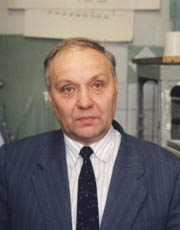|
The main scientific interests of the Department lie in the study of molecular mechanisms of cryo-damage and cryoprotection of biological systems of different levels of organization. To solve these problems, the Department has developed and modified several low temperatures methodological approaches that allow research at the molecular level. The effect of low temperature on the conformational stability and biological activity of biomacromolecules and on the functional integrity of tissue cells of the fetoplacental complex (serum and erythrocytes from cord blood and adult's blood) was studied.
An interesting area of research of the Department was to study the effect of low temperatures and cryoprotective substances on the structural and functional parameters of enzymes immobilized on a holder, i.e. the biosensor. A patent-protected technology for long-term low-temperature storage of enzymatic biosensors has been created.
The Department studies the reactions of biological tissues and their extracts to low temperatures are being carried out. In particular, it was found that the properties of human placenta extracts obtained from the placenta stored at -196 ° C do not depend on the shelf life. Such extracts retain the ability to increase the osmotic and acid resistance of erythrocytes, antioxidant activity and anti-inflammatory properties of extracts and their individual fractions in comparison with extracts from fresh placenta. In contrast, there are differences in the properties of extracts obtained from the placenta, which was stored for more than 1 month at -20 ° C. Extracts obtained from the placenta, stored at -196°C, retain biological activity, the ability to accelerate the repair process in burns to the skin of laboratory animals. The theoretical significance of the obtained results is that they allow to clarify the modern concept of cryo-damage and cryoprotection of biological structures, the practical value is in the development of new methods and modification of existing ones for cryopreservation of cell and tissue suspensions and the possibility of using the proposed rapid assessment of their biological activity.
Recently, the scholars of the Department were studying the effects of low temperatures on the state of globular proteins in the hydrogels which contain nanoparticles. The main purpose of the work is to elucidate the possibility of using composite polymeric carriers with the inclusion of nanomaterials to prevent cryodegradation associated with aggregation of biomacromolecules during freezing and low-temperature storage of globular proteins, and to make recommendations for long-term low-temperature storage of biologically active substances.
The Department conducts research on the interaction, cytotoxicity and biocompatibility of carbon nanomaterials (fullerenes, nanotubes, nanohorns, nanodiamonds, graphene) with cells and cellular organelles.
Employees of the Department discovered the phenomenon of optical and acoustic emission at cryopreservation stages and determined its role in cryo-damage of cell suspensions.
|









